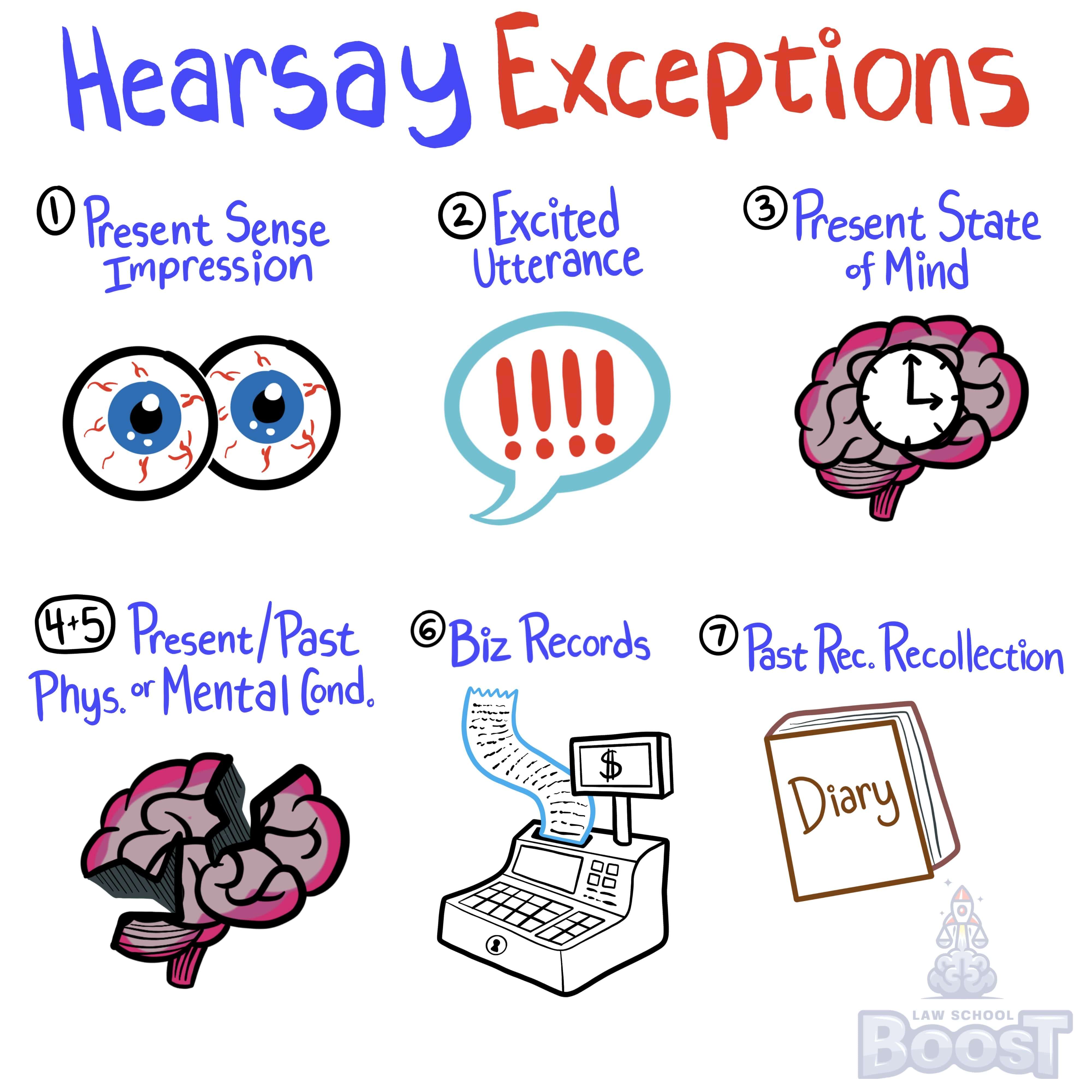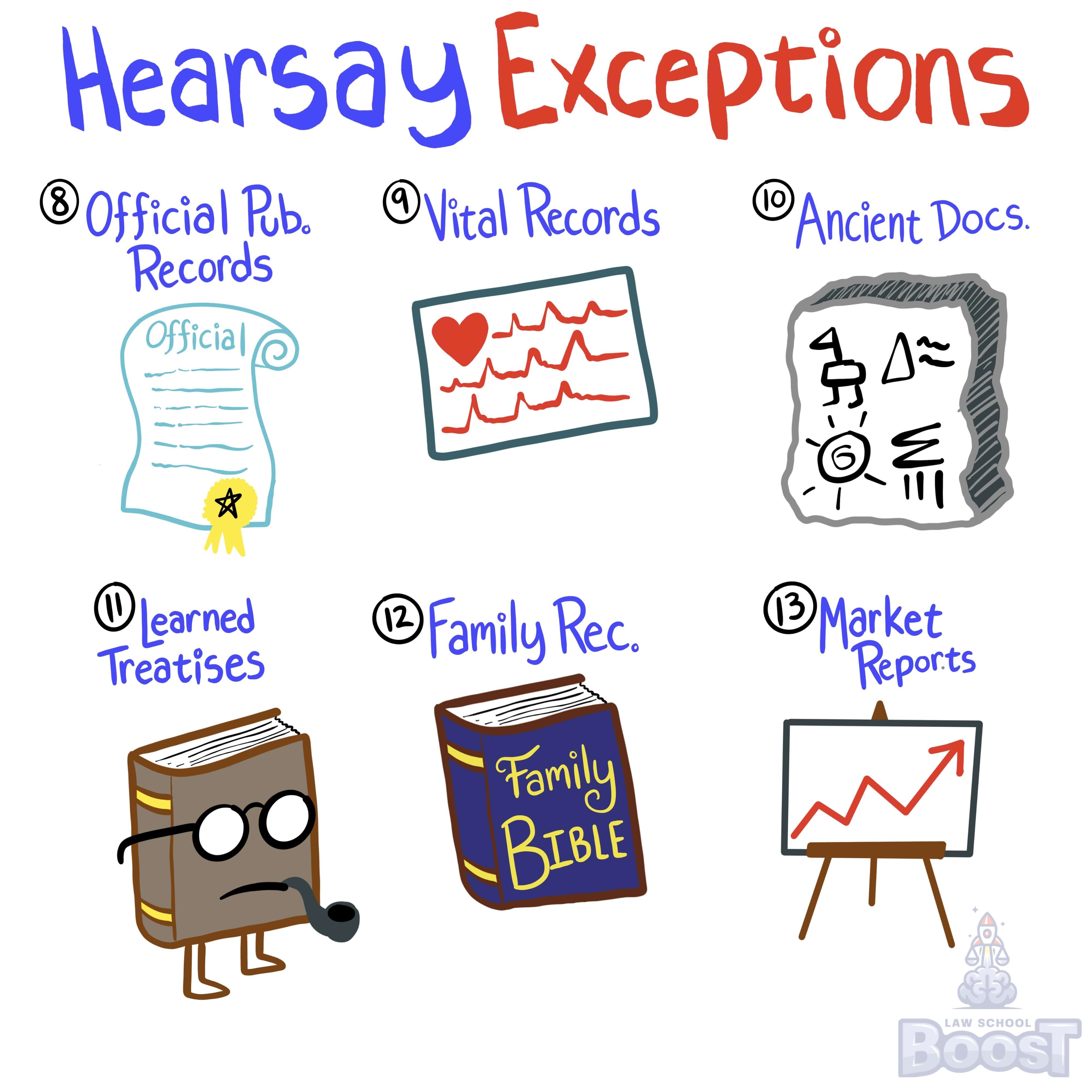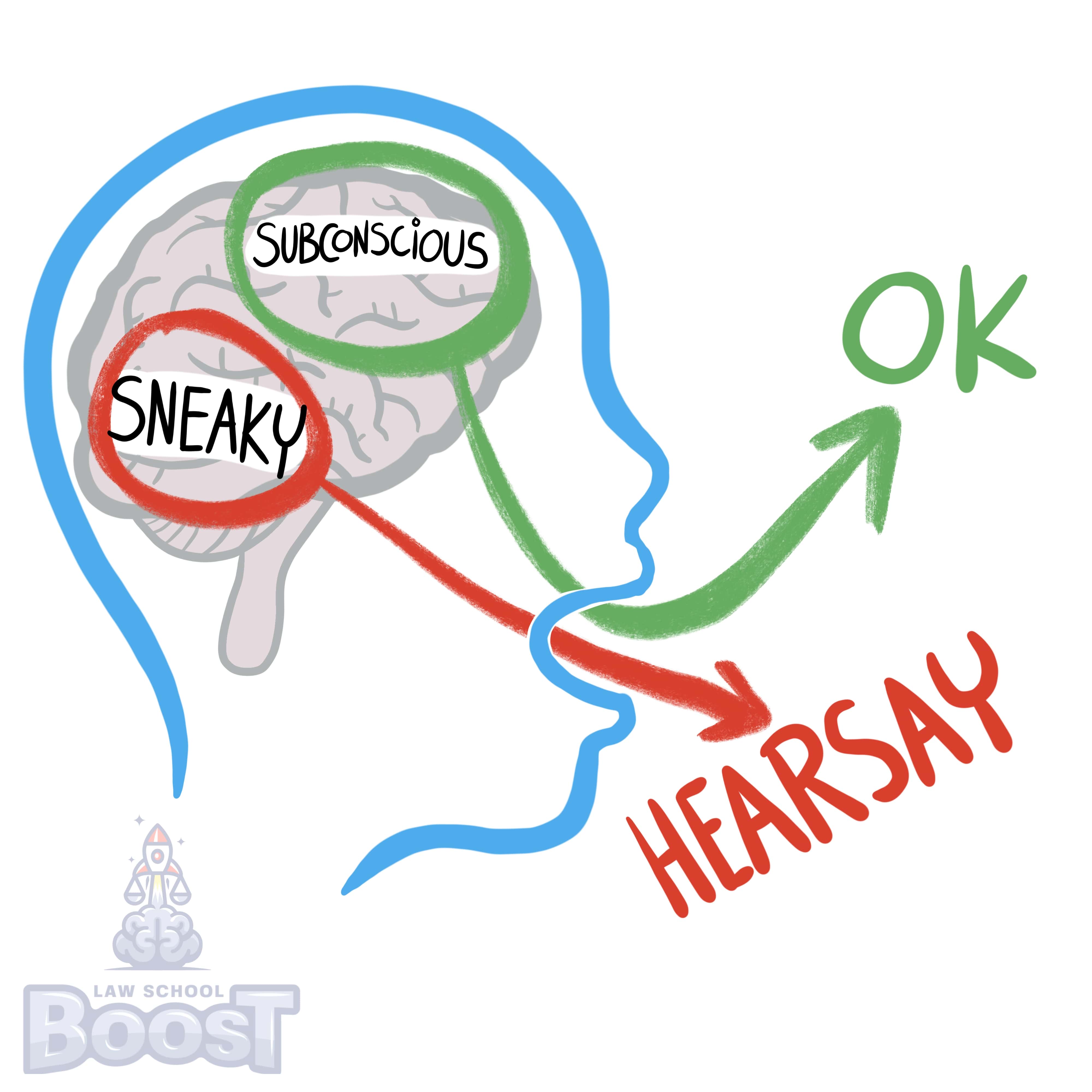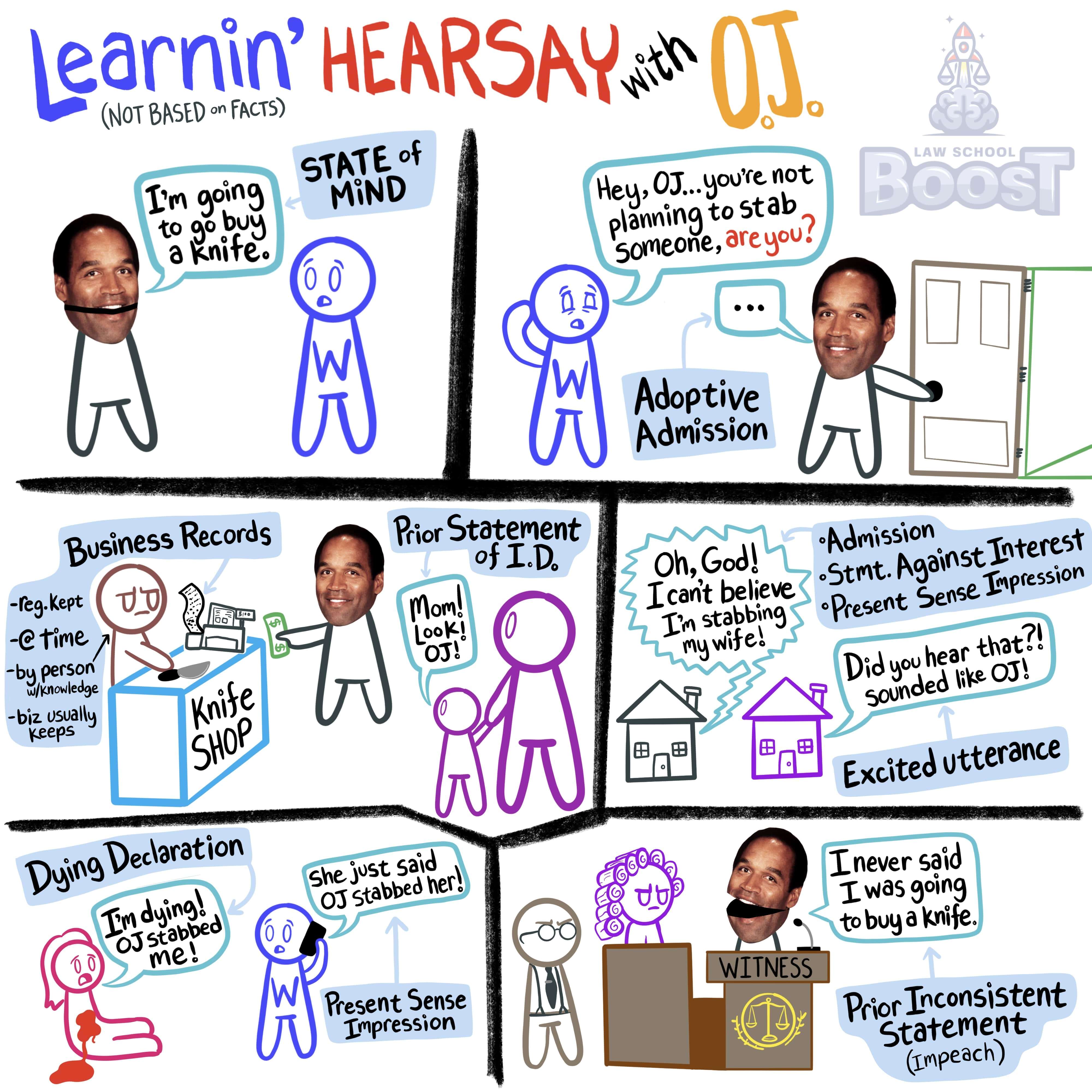🦅
Federal Evidence • Hearsay Exceptions - Unavailability NOT Required
EVID#049
Legal Definition
These statements are of the declarant's then-existing physical or mental condition or state of mind (but not their memory or beliefs).
It doesn't matter whether the witness is available or not.
It doesn't matter whether the witness is available or not.
Plain English Explanation
These statements describe the declarant's existing emotions or physical state when the statements were made. It does not matter if the witness is available to testify or not.
The purpose is to allow reliable evidence of someone's state of mind or physical condition at a particular time, even if that person cannot testify directly. This makes sense because how someone was feeling or a description of their physical condition is often very relevant in legal cases.
For example, if a person told their friend "I'm scared because my ex threatened me" shortly before disappearing, this statement would likely be admissible under this exception to demonstrate the missing person's fearful emotional state before they went missing. The statement is considered reliable since it was describing emotions at that time.
The purpose is to allow reliable evidence of someone's state of mind or physical condition at a particular time, even if that person cannot testify directly. This makes sense because how someone was feeling or a description of their physical condition is often very relevant in legal cases.
For example, if a person told their friend "I'm scared because my ex threatened me" shortly before disappearing, this statement would likely be admissible under this exception to demonstrate the missing person's fearful emotional state before they went missing. The statement is considered reliable since it was describing emotions at that time.
Hypothetical
Hypo 1: Bob and Sam are arguing, and Sam says, "I'm really angry at Bob right now!" Later, in court, a witness tells the judge about Sam's statement. Result: The rule applies here. The witness can share Sam's statement to show how Sam was feeling at that time (he was "really angry at Bob" in that moment).
Hypo 2: Before a meeting, Bob overhears Sam saying to himself, "I'm determined to win this contract." In court, Bob wants to use this statement to show Sam's motivation. Result: This is another good example of the rule. Bob can tell the court about Sam's statement as it reflects Sam's state of mind before the meeting.
Hypo 3: After an accident, Sam tells Amy, "I'm in a lot of pain." In a lawsuit, Amy shares Sam's statement to explain his condition at that time. Result: Sam's statement about his physical condition is relevant and can be shared in court under this rule.
Hypo 5: After an argument with Bob, Sam tells Timmy, "Bob cheated in the game last week." In court, Bob's lawyer tries to use this statement to show Bob's character. Result: This rule doesn't apply here because Sam's statement is about a past event and Bob's character, not about Sam's present state of mind.
Hypo 2: Before a meeting, Bob overhears Sam saying to himself, "I'm determined to win this contract." In court, Bob wants to use this statement to show Sam's motivation. Result: This is another good example of the rule. Bob can tell the court about Sam's statement as it reflects Sam's state of mind before the meeting.
Hypo 3: After an accident, Sam tells Amy, "I'm in a lot of pain." In a lawsuit, Amy shares Sam's statement to explain his condition at that time. Result: Sam's statement about his physical condition is relevant and can be shared in court under this rule.
Hypo 5: After an argument with Bob, Sam tells Timmy, "Bob cheated in the game last week." In court, Bob's lawyer tries to use this statement to show Bob's character. Result: This rule doesn't apply here because Sam's statement is about a past event and Bob's character, not about Sam's present state of mind.
Visual Aids




Related Concepts
In California, how does the ancient documents hearsay exception differ?
In California, how does the judgments of conviction hearsay exception differ?
In California, how does the learned treatises hearsay exception differ?
In California, how does the official and public records hearsay exception differ?
In California, what is the contemporaneous statements hearsay exception, and does it require the witness to be available?
In California, what is the spontaneous statement hearsay exception, and does it require the witness to be available?
What is the ancient documents hearsay exception, and does it require the witness to be available?
What is the business records hearsay exception, and does it require the witness to be available?
What is the excited utterance hearsay exception, and does it require the witness to be available?
What is the family records hearsay exception, and does it require the witness to be available?
What is the judgments of conviction hearsay exception, and does it require the witness to be available?
What is the learned treatises hearsay exception, and does it require the witness to be available?
What is the market reports hearsay exception, and does it require the witness to be available?
What is the official and public records hearsay exception, and does it require the witness to be available?
What is the past physical or mental condition hearsay exception, and does it require the witness to be available?
What is the past recorded recollection hearsay exception, and does it require the witness to be available?
What is the present physical or mental condition hearsay exception, and does it require the witness to be available?
What is the present sense impression hearsay exception, and does it require the witness to be available?
What is the property records hearsay exception, and does it require the witness to be available?
What is the vital records hearsay exception, and does it require the witness to be available?


